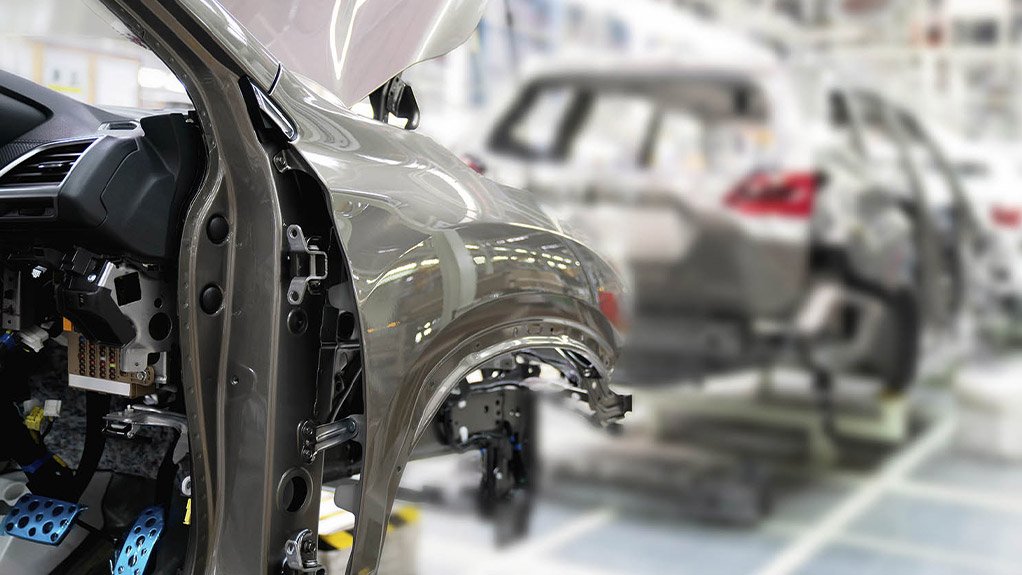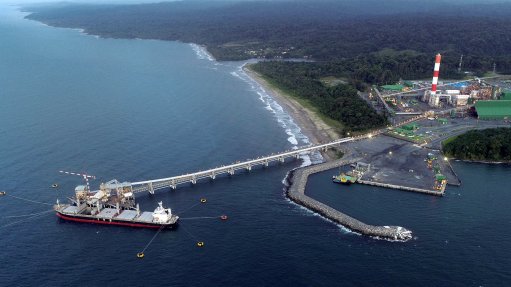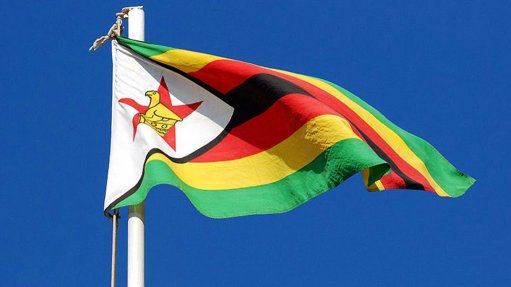AAAM to unlock Africa’s economic potential – CEO



DAVID COFFEY "The continental strategy promotes countries to align with and complement neighbouring countries in order to facilitate inclusivity and the development of the automotive industry" - David Coffey
GEARED FOR SUCCESS Implementation of the continental automotive strategy through the required policies will increase new-vehicle demand in Africa from 1.1-million units a year currently to five-million units a year by 2035
The African Association of Automotive Manufacturers’ (AAAM’s) objective is to expand and deepen the automotive industry across Africa by working with African governments. This will be achieved by developing, refining and implementing auto policies and ecosystems that will attract investors and unlock Africa’s economic potential.
AAAM CEO David Coffey says the association is actively working with key stakeholders in various African countries; the hub assemblers initially include Ghana, CÔte d’Ivoire, Nigeria, Egypt, Ethiopia and Kenya.
Morocco and South Africa are currently the only two countries in Africa that have significant automotive manufacturing industries, with Morocco producing 403 007 vehicles in 2021 and South Africa 499 087 vehicles in the same year, he says.
Other than Egypt, which produced more than 1 00 000 vehicles in 2021, the rest of the continent has fragmented, low volume semi-knocked down production facilities in various countries, notes Coffey.
Africa also has a low motorisation rate of 42/1 000 inhabitants, whereas the global average is 182/1 000 inhabitants. There is a lack of harmonised standards and homologation, in addition to the unregulated importation of three- to five-million used vehicles yearly, notes Coffey.
He says poor infrastructure, high logistics costs, affordability challenges, and a lack of component manufacturers are also inhibiting the automotive industry from contributing to the industrialisation of Africa.
Industrial Policy
The AAAM, along with the African Continental Free Trade Area (AfCFTA) Secretariat, the African Union, Afreximbank, United Nations Economic Commission for Africa and African Organisation for Standardisation, has developed a draft continental automotive strategy and implementation plan, which is currently under review by the AfCFTA member States.
Moreover, the AAAM signed a memorandum of understanding in February last year, with four European private-sector associations and eight African associations to collaborate on driving the development of the automotive industry across Africa.
Coffey notes that the continental strategy promotes countries to align with and complement neighbouring countries in order to facilitate inclusivity and the development of the automotive industry.
The first component required is the political willingness to legislate and implement a progressive automotive policy, which includes taking advantage of the benefits of the evolving and significant single market of the AfCFTA.
The second component focuses on the development of regional value chains and the transformation of raw materials.
The aim is to develop a strong component manufacturing base and to create linkages and partnerships across and external to Africa, resulting in viable, sustainable production and trade.
“About 60% of spare parts sold in Africa are used, and while the remaining 40% are new, half of them are counterfeit parts. There is such a huge manufacturing opportunity by introducing standards to regulate spare parts in the interest of safety and reliability.”
Coffey adds that it is also important to assess what natural resources a country has, as transformation of these resources, including minerals, could be that African country’s significant contribution to the automotive value chain.
The last component addresses demand creation and deeper industrialisation. While Africa’s share of the global population is 17.2%, vehicle demand in the continent comprises only 1.3% of global demand.
Coffey states that many people cannot afford a new vehicle; thus, implementing an efficient and safe used car ecosystem along with affordable and innovative mobility solutions, will increase automotive demand.
He says that automotive policies also need to address creating access to affordable finance options in Africa.
“The architecture of national auto policies, while independent, are ideally compatible and designed to conform to an ecosystem that supports continental production and trade while driving manufacturing competitiveness.”
Coffey says the implementation of the continental automotive strategy through the required policies will increase new-vehicle demand in Africa from 1.1-million units a year currently to five-million units a year by 2035.
Policy Development
Ghana will implement the balance of its policy provisions this year after announcing its automotive programme in 2020, notes Coffey.
This includes taking the big step of banning the importation of used vehicles that are older than ten years.
“In addition to supporting the industrialisation of this sector this will help to decrease the risks of accidents on the road and enable customers [to use] roadworthy vehicles.”
Egypt announced its automotive policy in June last year, with final parliamentary approval on October 27, 2022. The country has formed an Automotive Supreme Council to oversee implementation and the attainment of objectives of the policy.
The Kenyan national assembly approved the Kenya National Automotive Policy on May 25, 2022, and an automotive council will be formed to implement the policy this year.
In Côte d’Ivoire, AAAM policy experts were commissioned by government to research and develop an automotive policy, which was completed in December 2022.
KPMG was commissioned by the Nigerian government to conduct an independent automotive policy review of the country; this was completed in 2022.
There is also substantial demand for minerals in the automotive industry. Electric vehicles require cobalt, manganese, lithium and nickel – all of which are in Africa; 70% of these minerals are being exported unprocessed to China.
“This is a major loss on localisation – we have the potential – now we need the policies,” Coffey concludes.
Comments
Announcements
What's On
Subscribe to improve your user experience...
Option 1 (equivalent of R125 a month):
Receive a weekly copy of Creamer Media's Engineering News & Mining Weekly magazine
(print copy for those in South Africa and e-magazine for those outside of South Africa)
Receive daily email newsletters
Access to full search results
Access archive of magazine back copies
Access to Projects in Progress
Access to ONE Research Report of your choice in PDF format
Option 2 (equivalent of R375 a month):
All benefits from Option 1
PLUS
Access to Creamer Media's Research Channel Africa for ALL Research Reports, in PDF format, on various industrial and mining sectors
including Electricity; Water; Energy Transition; Hydrogen; Roads, Rail and Ports; Coal; Gold; Platinum; Battery Metals; etc.
Already a subscriber?
Forgotten your password?
Receive weekly copy of Creamer Media's Engineering News & Mining Weekly magazine (print copy for those in South Africa and e-magazine for those outside of South Africa)
➕
Recieve daily email newsletters
➕
Access to full search results
➕
Access archive of magazine back copies
➕
Access to Projects in Progress
➕
Access to ONE Research Report of your choice in PDF format
RESEARCH CHANNEL AFRICA
R4500 (equivalent of R375 a month)
SUBSCRIBEAll benefits from Option 1
➕
Access to Creamer Media's Research Channel Africa for ALL Research Reports on various industrial and mining sectors, in PDF format, including on:
Electricity
➕
Water
➕
Energy Transition
➕
Hydrogen
➕
Roads, Rail and Ports
➕
Coal
➕
Gold
➕
Platinum
➕
Battery Metals
➕
etc.
Receive all benefits from Option 1 or Option 2 delivered to numerous people at your company
➕
Multiple User names and Passwords for simultaneous log-ins
➕
Intranet integration access to all in your organisation




















